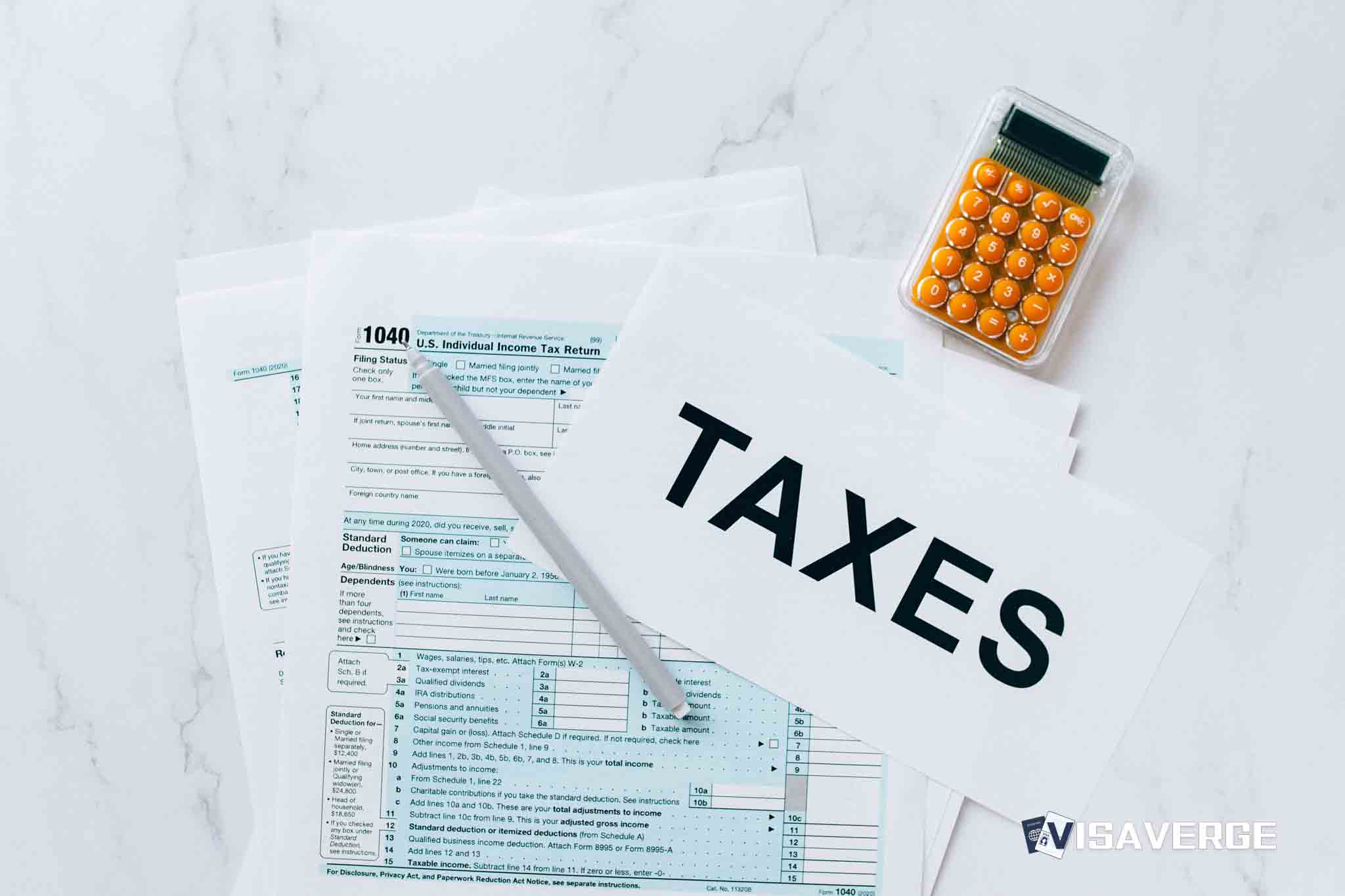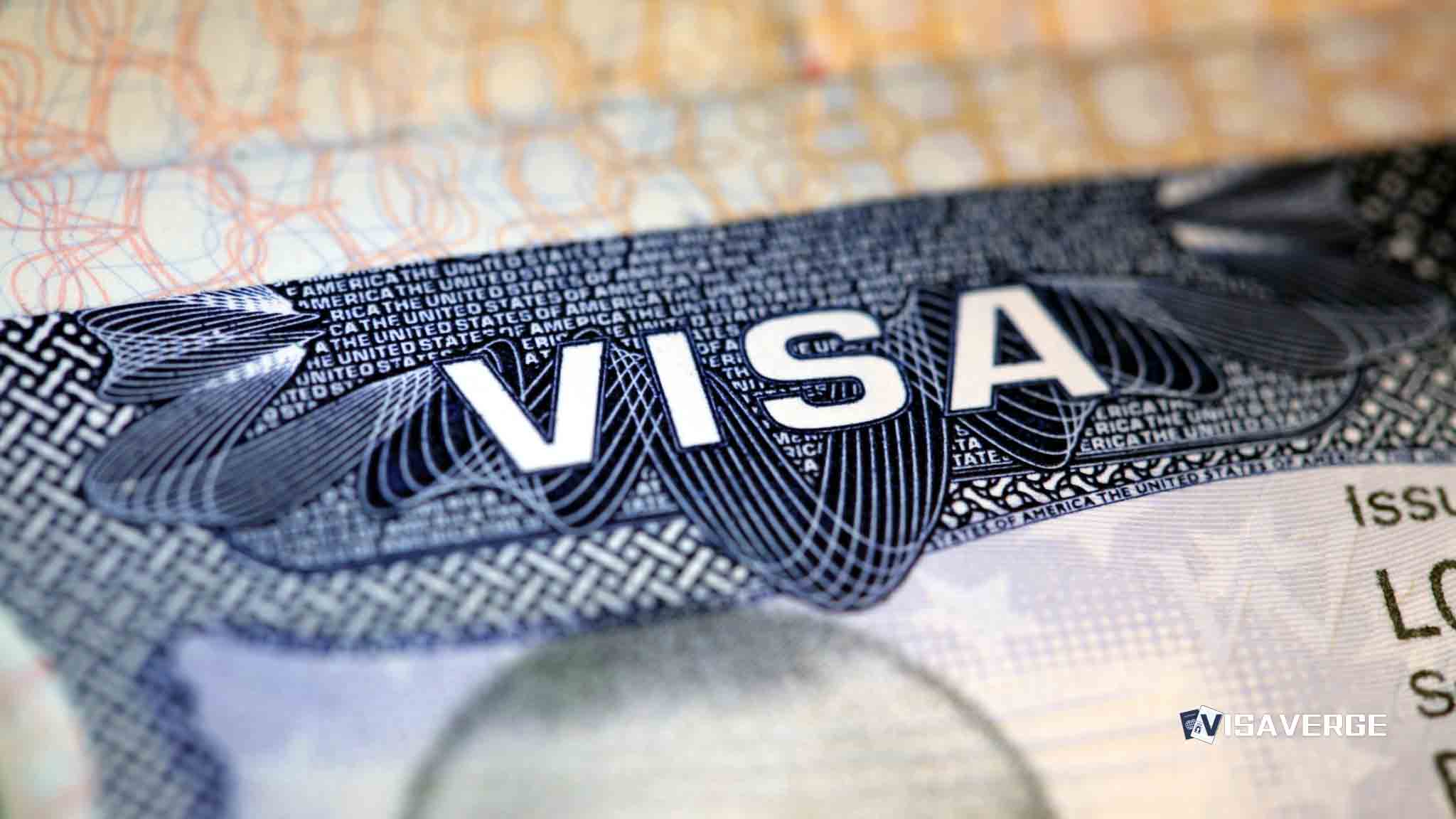Key Takeaways
• The One Big Beautiful Bill Act passed the House and awaits Senate action as of July 3, 2025.
• The bill makes the 37% top tax rate permanent and increases standard deductions for tax residents.
• New immigration fees and increased enforcement could raise costs and scrutiny for H1B visa holders.
As of July 3, 2025, the “One Big Beautiful Bill Act” (H.R. 1) has passed the House of Representatives and is now awaiting action in the Senate. This sweeping piece of legislation brings together major changes in both tax and immigration policy, making it one of the most closely watched bills for anyone living and working in the United States 🇺🇸 on an H1B visa. While the bill does not single out H1B visa holders for special treatment in tax returns, the broad changes it proposes could still have a real impact on their lives. Here’s what you need to know about how your tax returns and immigration status might change if the bill becomes law, and what steps you should consider taking next.
Who is affected?
Anyone in the United States 🇺🇸 on an H1B visa, especially those who have been living and working in the country long enough to be considered residents for tax purposes, should pay close attention. The bill’s changes to tax rates, deductions, and immigration fees could affect your wallet, your paperwork, and your plans for the future.

What is changing?
The “One Big Beautiful Bill Act” proposes to make the current top individual tax rate permanent, increase the standard deduction, and introduce new fees for some immigration applications. It also boosts funding for immigration enforcement, which could mean stricter rules and more careful checks for people on temporary visas like the H1B.
When will these changes happen?
The bill has passed the House but still needs to go through the Senate, where it could be changed before becoming law. If it passes, most tax changes would take effect for the next tax year, meaning your tax returns filed in 2026 for the 2025 tax year could look different.
Where can you find more information?
Official updates will come from the U.S. Citizenship and Immigration Services (USCIS) and the Internal Revenue Service (IRS). You can also track the bill’s progress on the U.S. Congress official website.
Why does this matter?
For H1B visa holders, changes in tax law and immigration policy can affect not just how much you pay in taxes, but also your ability to stay in the United States 🇺🇸, change jobs, or apply for permanent residency. Understanding these changes now can help you plan ahead and avoid surprises.
Tax Reforms: What H1B Visa Holders Need to Know
The “One Big Beautiful Bill Act” includes several tax reforms that could affect H1B visa holders, especially those who are considered residents for tax purposes. Here’s a breakdown of the most important changes:
Permanent Top Tax Rate
What’s changing:
The bill makes the current top individual tax rate of 37% permanent. This rate was set to expire, but if the bill passes, it will stay in place for the foreseeable future.
Who does this affect?
If you are an H1B visa holder and you meet the “substantial presence test,” you are treated as a resident for tax purposes. This means you pay taxes like a U.S. citizen, including being subject to the top tax rate if your income is high enough.
What is the substantial presence test?
This is a rule the IRS uses to decide if you are a resident for tax purposes. In simple terms, if you have been in the United States 🇺🇸 for at least 31 days this year and 183 days over the last three years (counting all the days this year, one-third of the days last year, and one-sixth of the days the year before), you are likely considered a resident for tax purposes. You can read more about this on the IRS website.
What does this mean for your tax returns?
If you are a resident for tax purposes, you will continue to pay the same top tax rate as before, but now you know it won’t change soon. If your income is below the top bracket, your tax rate will also stay the same unless Congress changes it in the future.
Increased Standard Deduction
What’s changing:
The bill increases the standard deduction, which is the amount you can subtract from your income before calculating your taxes.
Who does this help?
If you are an H1B visa holder who is considered a resident for tax purposes, you can claim the standard deduction just like a U.S. citizen. This could lower your taxable income and reduce the amount of tax you owe.
How does this affect your tax returns?
A higher standard deduction means you might pay less in taxes, especially if you don’t have enough expenses to itemize deductions. This change is generally good news for most people, including many H1B visa holders.
Section 199A Deduction
What’s changing:
The bill increases the Section 199A deduction, which allows certain business owners to deduct up to 20% of their qualified business income.
Does this affect most H1B visa holders?
Not directly. Most H1B visa holders work for employers and are not allowed to run their own businesses due to visa restrictions. However, if you have a side business that is allowed under your visa, or if you change status in the future, this deduction could become important.
Immigration Provisions: Fees, Enforcement, and Policy Changes
The “One Big Beautiful Bill Act” also includes several changes to immigration policy that could affect H1B visa holders, even if not directly targeting the H1B program.
New Immigration Fees
What’s changing:
The bill introduces new fees for various immigration applications. While it does not directly increase the fee for H1B visa applications, it does add fees for other processes, such as adjusting status to permanent residency (green card), or applying for certain waivers.
How could this affect H1B visa holders?
If you plan to apply for a green card or change your immigration status, you may face higher costs due to these new fees. It’s important to budget for these possible expenses and check the latest fee schedules on the USCIS website.
Increased Immigration Enforcement
What’s changing:
The bill provides more money for border security and immigration enforcement. This could mean more careful checks of visa applications and renewals, and possibly stricter rules for staying in status.
What does this mean for H1B visa holders?
You may face more scrutiny when applying for H1B extensions, transfers, or changes of status. It’s important to keep your paperwork in order and respond quickly to any requests for more information from USCIS.
Policy Changes and Uncertainty
What’s changing:
While the bill does not make direct changes to the H1B program, the increased focus on enforcement and new fees could signal a tougher environment for all immigrants, including skilled workers on H1B visas.
What should you do?
Stay informed about policy changes, and consider consulting with an immigration attorney if you have questions about your status or future plans.
How Tax Filing Status Affects H1B Visa Holders
Your tax filing status is one of the most important factors in determining how these changes will affect you. Here’s what you need to know:
Resident vs. Non-Resident Alien
- Non-resident aliens: If you do not meet the substantial presence test, you are considered a non-resident alien for tax purposes. You only pay taxes on income from U.S. sources, and you cannot claim the standard deduction (with a few exceptions).
- Resident aliens: If you meet the substantial presence test, you are taxed like a U.S. citizen. You must report your worldwide income and can claim the standard deduction and other benefits.
Why does this matter?
The tax reforms in the bill mostly affect people who are taxed as residents. If you are a new H1B visa holder or have spent less time in the United States 🇺🇸, you may still be a non-resident for tax purposes and see less impact from these changes.
How do you know your status?
Use the IRS’s substantial presence test to check your status each year. If you are unsure, a tax professional can help you figure it out.
Practical Implications: What Should H1B Visa Holders Do Now?
With so many changes on the horizon, it’s important to take practical steps to protect your status and your finances.
1. Track the Bill’s Progress
The Senate may change the bill before it becomes law. Stay updated by following official sources like Congress.gov and trusted immigration news outlets. As reported by VisaVerge.com, the Senate’s version of the bill could include further changes that impact H1B visa holders, so it’s wise to keep an eye on the news.
2. Review Your Tax Status
- Check if you are a resident or non-resident for tax purposes.
- If you are a resident, plan for the new standard deduction and permanent tax rates.
- If you are a non-resident, make sure you understand which forms to use and what income to report.
3. Prepare for Possible Fee Increases
If you plan to apply for a green card or change your immigration status, budget for higher fees. Check the latest information on the USCIS filing fees page.
4. Keep Your Immigration Paperwork in Order
With increased enforcement, it’s more important than ever to keep your documents up to date. Respond quickly to any requests from USCIS, and keep copies of all your forms and receipts.
5. Consult Professionals
Tax and immigration laws are complex and can change quickly. Consider talking to a tax professional or immigration attorney to make sure you are following the rules and making the best choices for your situation.
Background: Why Is the “One Big Beautiful Bill Act” Important?
The “One Big Beautiful Bill Act” is one of the largest pieces of legislation to move through Congress in recent years. It combines tax reforms with changes to immigration policy, aiming to address both economic and border security concerns. For H1B visa holders, the bill’s mix of tax and immigration changes means it could affect both your take-home pay and your ability to stay in the United States 🇺🇸.
Key reasons the bill matters for H1B visa holders:
- Tax certainty: Making the top tax rate permanent removes some uncertainty about future tax bills.
- Higher deductions: Increased standard deductions could lower taxes for many.
- Immigration costs: New fees could make it more expensive to adjust status or apply for benefits.
- Stricter enforcement: More funding for immigration enforcement could mean more careful checks and stricter rules.
Implications for Stakeholders
For H1B Visa Holders
- Financial planning: You may need to adjust your budget for possible changes in taxes and immigration fees.
- Career planning: Stricter enforcement could affect job changes or extensions.
- Long-term plans: If you hope to apply for a green card, higher fees and more careful checks could affect your timeline.
For Employers
- Hiring costs: If fees for adjusting status go up, employers may face higher costs when sponsoring workers for green cards.
- Compliance: Stricter enforcement means employers must be careful to follow all rules when hiring and managing H1B workers.
For Families
- Dependent visas: Changes in fees and enforcement could affect spouses and children on dependent visas.
- Future planning: Families may need to plan for higher costs and more paperwork if they want to stay in the United States 🇺🇸 long-term.
Next Steps and Actionable Guidance
- Stay informed: Follow updates from USCIS, IRS, and Congress.
- Check your tax status: Use the IRS’s tools or consult a tax professional.
- Plan for higher costs: Budget for possible fee increases if you plan to adjust your status.
- Keep documents organized: Make sure your immigration paperwork is complete and up to date.
- Seek professional advice: If you have questions, talk to a tax or immigration expert.
Conclusion
The “One Big Beautiful Bill Act” is set to bring big changes to both tax and immigration policy in the United States 🇺🇸. While it does not target H1B visa holders directly, the changes it makes could still affect your tax returns, your costs, and your plans for the future. By staying informed, checking your tax status, and preparing for possible changes, you can make sure you are ready for whatever comes next. For the latest official information, visit the USCIS website and consult trusted sources like VisaVerge.com for ongoing analysis and updates.
Learn Today
H1B Visa → A U.S. temporary work visa for specialized professional occupations, usually valid up to six years.
Substantial Presence Test → IRS rule determining U.S. tax residency based on days spent in the country over three years.
Standard Deduction → A fixed amount subtracted from income before taxation, lowering taxable income for residents.
Section 199A Deduction → A tax deduction up to 20% of qualified business income for certain business owners.
USCIS → United States Citizenship and Immigration Services, agency managing immigration applications and enforcement.
This Article in a Nutshell
The One Big Beautiful Bill Act may alter tax rates and immigration fees for H1B visa holders. While it keeps the 37% top tax rate permanent, it raises deductions and enforces stricter immigration checks, meaning impacts on taxes, fees, and visa renewals are likely starting 2026.
— By VisaVerge.com







